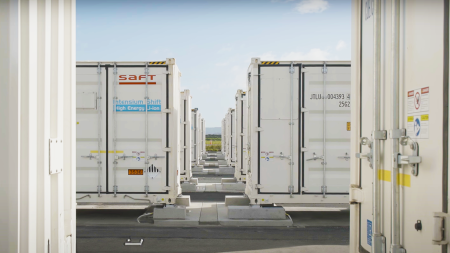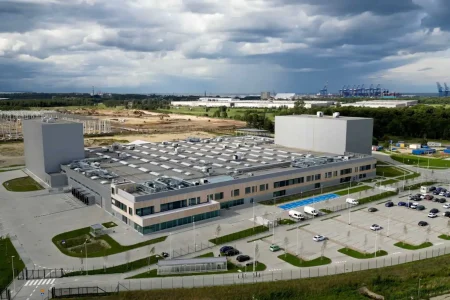India’s Union Minister of Road Transport and Highways, Nitin Gadkari, has stated that he will drive a green hydrogen-powered automobile in Delhi to demonstrate that hydrogen can be generated from water.
“I have a proposal to run buses, trucks, and cars on green hydrogen produced from sewage water and solid waste in cities,” the Union Minister stated.
Gadkari is correct, of course. When compared to electric vehicles, it is possible to make green hydrogen from wastewater, and the hydrogen fuel cell vehicles that result are a much superior option for lowering vehicular pollution.
Green hydrogen is a fuel that is created by electrolyzing water using renewable energy. As a result, the water is split into hydrogen and oxygen. Because cleaner technologies such as solar or wind power can be employed throughout the process, the green hydrogen produced is emission-free. Green hydrogen also offers a wide range of uses, including industrial feedstock, fuel cell cars, and energy storage.
Green hydrogen production is currently an expensive technique that is still in its infancy. India, on the other hand, is attempting to establish itself as a worldwide green hydrogen centre. PM Modi stated during his Independence Day speech that India will become the world’s largest supplier of green hydrogen in the coming years. He also established the National Hydrogen Mission to promote the country’s green hydrogen economy.
“India to become the world’s largest Green Hydrogen hub,” Prime Minister Modi said again during his UN General Assembly speech in September. With our decisions, we are accountable to future generations.”
You’ve probably read a lot about electric vehicles and their ability to reduce carbon emissions. However, there are a number of reasons why green hydrogen-powered vehicles are a far better option than lithium-ion-powered electric vehicles.
The need to break the monopoly of Oil and Petroleum Exporting Countries is one of the main reasons why the world wants to move away from traditional fuels (OPEC). EVs, on the other hand, do not completely fix the problem. The most significant metal required for Li-ion batteries used in Electric Vehicles is lithium, which is a scarce resource whose demand is expected to increase as EVs begin to replace fossil-fuel-powered vehicles. While cellphones require only approximately 3 grams of the light element, electric car batteries use 10 kg.
In truth, Lithium-ion batteries will necessitate the extraction of tons of the metal, and not all countries have the required deposits. Green hydrogen, on the other hand, may be created in large quantities because it simply requires water to be electrolyzed. For example, Gadkari has stated that wastewater will be utilized to make green hydrogen, addressing two issues: wastewater management and the need for a cleaner alternative to traditional fuel.
Lithium-ion battery-powered electric vehicles are not particularly eco-friendly. Once lithium-ion batteries have been consumed, there is no efficient way to dispose of them. The components of such batteries, such as the cathode, anode, separator, and electrolyte, are tightly stacked and difficult to separate. As a result, after lithium-ion batteries are consumed, they can significantly increase the amount of solid waste on the globe.
Consider the case of green hydrogen. “In a fuel cell, hydrogen (H2) gas from the vehicle’s fuel tank combines with oxygen (O2) from the air to generate electricity with just water and heat as byproducts,” according to the US Environmental Protection Agency.
You would be able to grasp this because you utilize cellphones and other consumer electronics. Rechargeable lithium-ion batteries have a limited lifespan, with a lithium-ion battery’s expected life being two to three years or 300 to 500 charge cycles, whichever comes first. As a result, lithium-ion batteries may not be the most cost-effective solution, particularly in poorer nations where automobiles are still considered a luxury.
A hydrogen fuel cell stack, on the other hand, can last much longer. In reality, the fuel cell stack in a Toyota Mirai is built to last the life of the vehicle, making hydrogen fuel cells a far more cost-effective solution in terms of maintenance and replacement.
Operating hydrogen cars will necessitate the use of hydrogen, which is a zero-emission activity. Even the electrolysis of water, which is a completely pure process, requires just the use of renewable energy to produce green hydrogen. Running EVs, on the other hand, will be more difficult. Although electric vehicles are zero-emission vehicles in and of themselves, what about the electricity required to power them?
Developing countries such as India and China continue to rely heavily on coal-fired thermal energy, which is not a very clean source of electricity. It will take some time for the transition to wind and solar energy. So, using coal-fired thermal plants to power EVs does not really improve the environment, and we are simply shifting from one form of hydrocarbon to another while driving our cars.
Ask any millennial, and they’ll tell you that charging electronic devices like phones, Bluetooth speakers, hair trimmers, and driers is the biggest problem of the twenty-first century. Is there anything else we can add to this list? Definitely not.
Consider the fact that a hydrogen fuel tank may be filled in as little as 5 to 10 minutes. Even Tesla’s 120 kW fast chargers, on the other hand, can charge an electric vehicle to 80% capacity in thirty minutes. Moreover, constructing a massive charging network solely for charging electric vehicles across major nations such as India or the United States will be prohibitively expensive. Green hydrogen, on the other hand, is far more convenient to carry and utilize as a normal fuel.
The future of the automobile industry is green hydrogen, not electric vehicles. Nonetheless, the electric car lobby is pushing electric vehicles hard for obvious reasons. India, on the other hand, appears to be opting for hydrogen-powered vehicles, contradicting all EV proponents.








